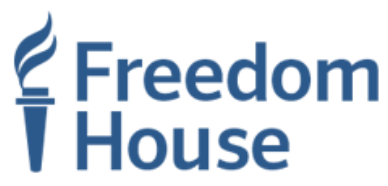FOR IMMEDIATE RELEASE

Washington - February 3, 2020 — Following the January 28 release of Crimean journalist Mykola Semena after four years of house arrest, Freedom House issued the following statement:
“Freedom House celebrates Mykola Semena’s release and acquittal,” said Marc Behrendt, director for Europe and Eurasia programs at Freedom House. “This represents a small victory in the protection of media freedom in Crimea, because the criminal charges initiated against Semena four years ago were entirely motivated by his critical reporting on the Russian Federation’s unrecognized annexation of the peninsula. But the media remain tightly restricted in Crimea, with professional and citizen journalists facing a range of reprisals for their work. Crimean Tatar journalists in particular are subject to harsh penalties. Their sentences, like Semena’s, should be reexamined. It is important that the United States, the European Union, and the international community insist on fair and thorough investigations of such cases.”
Background:
On January 28, Mykola Semena, a Crimea-based journalist and longtime contributor to the Ukrainian service of Radio Free Europe/Radio Liberty (RFE/RL), was released from house arrest in a case that has illustrated Russia’s efforts to silence independent voices on the peninsula. Semena received papers documenting a January 14 decision by a court in Simferopol, the Crimean capital, to terminate his sentence and clear his criminal record. The ruling allows him to move freely and resume his
journalism.
The environment for media freedom in Crimea remains one of the most challenging in the region. Virtually all independent professional journalists have left the Russian-occupied Ukrainian territory following Russian media and communications regulator Roskomnadzor’s 2015 decision not to renew the licenses of several key outlets, including ATR TV and the news agency Krymskie Novosti QHA, which are associated with the Crimean Tatar minority. Internet service providers in Crimea have blocked access to at least 20 Ukrainian sites.
The independent professional and citizen journalists who have remained in Crimea frequently face harassment, surveillance, enforced disappearance, forced hospitalization, criminal proceedings, or bans from the Russian Federation in an effort to prevent them from reporting on local developments, including human rights abuses. Among these are RFE/RL journalist Taras Ibragimov, who faces a 34-year ban from Crimea, and blogger Yevgeniy Gayvoronsky, who was deported from Crimea in 2019 after a number of arrests. Gayvoronsky’s arrests were made on the grounds that he “failed to undergo treatment for drug addiction.”
At least 10 other professional and citizen journalists from Crimea remain behind bars; many are Crimean Tatars affiliated with the Crimean Solidarity civic movement. They were arrested on accusations of terrorism and alleged ties to the Islamist group Hizb ut-Tahrir, which is banned as an extremist organization in the Russian Federation.
Those still in detention who are affiliated with Crimean Solidarity include the following:
1. Server Mustafayev—lead coordinator, citizen journalist, and streamer for Crimean Solidarity
2. Tymur Ibragimov—citizen journalist and streamer for Crimean Solidarity
3. Marlen Asanov—citizen journalist and streamer for Crimean Solidarity, advocate for the families of Crimean political prisoners
4. Seyran Saliyev—citizen journalist and streamer for Crimean Solidarity
5. Remzi Bekirov—citizen journalist for Crimean Solidarity and Grani.ru
6. Ruslan Suleymanov—citizen journalist and streamer for Crimean Solidarity
7. Osman Arifmemetov—citizen journalist and streamer for Crimean Solidarity
8. Rustem Sheykhaliyev—citizen journalist and streamer for Crimean Solidarity
9. Nariman Memedeminov—coordinator of media efforts for Crimean Solidarity
10. Endres Ametov—photographer and videographer for Crimean Solidarity
Crimea is rated Not Free in Freedom in the World 2019.
Russia is rated Not Free in Freedom in the World 2019 and Not Free in Freedom on the Net 2019.
|